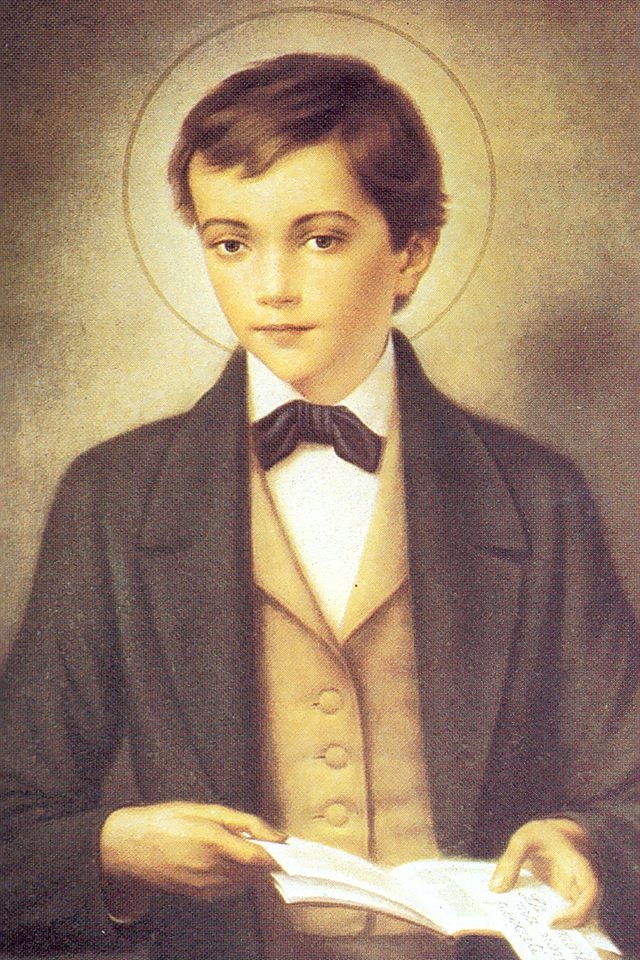
The Life of Dominic Savio By Venerable John Bosco
Chapter II Examples of Youthful Virtue at Murialdo. His Early Days at School.
It is a common thing to find people who are incredulous on the subject of youthful piety, and therefore it would be well to state at the outset that, for the following account, the writer is drawing directly from the narrative of the parish priest of the district in which Murialdo lay. In his written account he states:
"Soon after I had been appointed to Murialdo, and had commenced my duties, my notice was drawn in a special manner to a little boy of about five years of age who was brought by his mother to the church. His gentle countenance, his air of composure, his whole demeanour so devout and attractive, drew my attention to him, as they had already drawn the notice of others. When he had learnt the way to church, he would sometimes arrive there before the doors were opened; however, it did not suggest itself to him to spend the interval in play, as doubtless other boys would have done, but he used to kneel down on the steps, place himself in an attitude of prayer and remain thus till the church was opened. Neither rain nor snow seemed to affect him in any way when he was thus occupied. It was therefore very natural that I should be curious to make the acquaintance of this extraordinary child, and I found that he was none other than the little son of the blacksmith, Charles Savio.
If he ever saw me in the street he immediately made a respectful and joyful salutation, and always anticipated my greeting. It was about this time that he commenced to attend the parish school, and his already acquired habits of diligence and of taking pains with everything, soon showed their effect in his rapid progress. He had, of course, to mix with the young and thoughtless boys of his own age, but he always managed to avoid their little quarrels and disputes, although this at times brought upon him taunts and insults, which he bore with remarkable courage and patience. The usual boyish, but by no means praiseworthy, tricks and escapades were part of the usual programme of his companions, but Dominic generally found means for being otherwise employed when these were in progress.
The little habits of piety already described
increased with the growing years of his boyhood, and developed in
proportion as he had scope for its practice. At five years of age he
had already learnt to serve Mass and did so with great devotion. He
went in good time every day to the church, and, dearly as he loved to
serve, he was ready to yield the privilege to others if they wished
to do so, in which case he assisted with great devotion. He often
went to Confession, and as soon as he was allowed to make his First
Communion he did so with fervour and delight. At the sight of so many
signs of unusual piety I often used to think to myself: 'Here surely
is a boy of great promise; God grant that some means may be found to
bring such rare gifts to maturity.'" . . . Such was the
narrative of the parish priest of Murialdo, who had watched over the
childhood of this gifted boy.
Copyright ©1999-2023 Wildfire Fellowship, Inc all rights reserved

 Keep Site Running
Keep Site Running